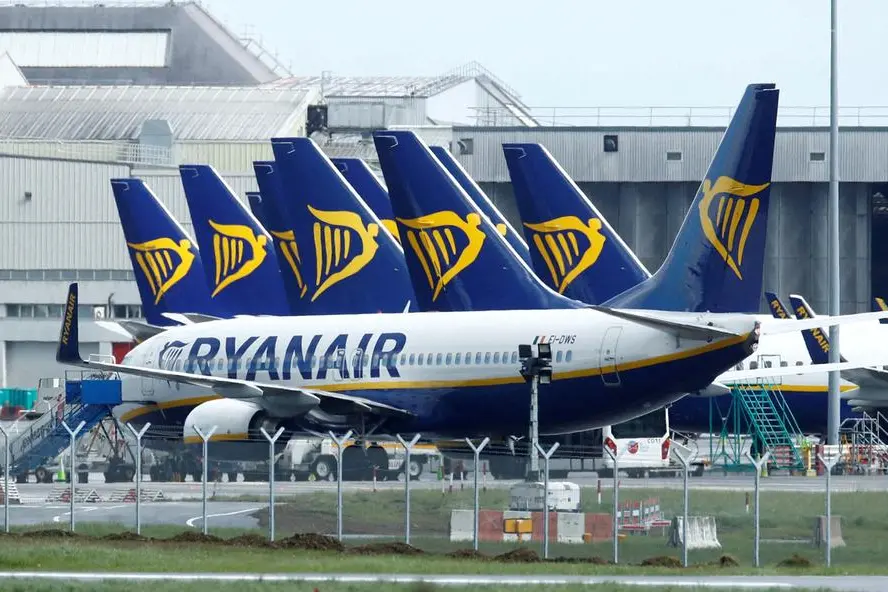PHOTO
BUDAPEST - Ryanair called on Hungarian Prime Minister Viktor Orban's government on Wednesday to scrap what it called a "misguided" new tax levied on departing passengers as part of efforts to rein in a rise in the budget deficit.
Orban's government announced new windfall taxes worth 800 billion forints ($2.19 billion) on "extra profits" earned by banks, energy companies and other firms last month, hitting Budapest stocks and rattling investors.
The measures are needed to finance Orban's costly policy of keeping a lid on household utility bills at a time of surging global energy prices as well as tax rebates and other measures, which helped Orban get re-elected in an April landslide.
The new levy on the airline industry involves a tax worth 10 to 25 euros on passengers departing Hungary from July.
"This unjustified tax on the airline sector (which has been heavily loss-making for the last two years) will be damaging for Hungarian tourism and the economy, which is dependent on air carriers to provide connectivity, tourism and jobs," Ryanair said in a statement.
"This ill-timed and ill-advised 'extra profits' tax which inexplicably compares the loss-making aviation industry with hugely profitable oil and energy companies, has instantly made Hungary uncompetitive and less attractive to airlines and tourists."
A Hungarian government spokesman did not immediately respond to emailed questions for comment.
Ryanair said in response to the new tax it would be forced to move growth capacity to countries that are working to restore traffic.
Rival carrier Wizz Air said last month it would take a long time for the airline industry to return to revenue and profitability levels seen before the COVID-19 pandemic. It said the tax would hamper the recovery of the tourism sector.
Deutsche Telekom unit Magyar Telekom cut its 2022 profit guidance on Sunday as a result of the new taxes on businesses, while banks in Hungary said the levies could harm their lending capacity.
Central Europe's largest independent lender, OTP Bank , said the new tax would cost it 78.3 billion forints this year alone.
(Reporting by Gergely Szakacs, Editing by Bernadette Baum)





















